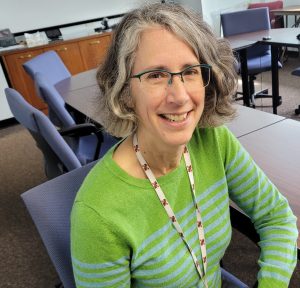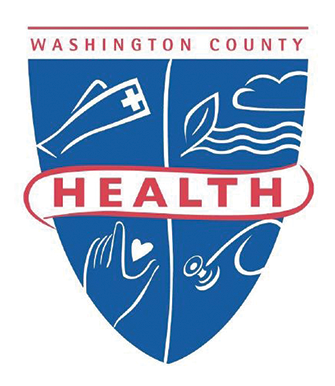
Hagerstown, Md. (March 30, 2023) – Dr. Diana Gaviria weaved through several layers of medicine on her way to public health. She enjoyed science in high school, spent some time in research and completed her bachelor’s degree in biology at Brown University in Rhode Island, before taking on medical school. Her hometown in New York, where her father was a practicing psychiatrist, was where she first studied medicine at Albany Medical College. She moved on to Case Western Reserve University School of Medicine in Cleveland, Ohio, for her doctorate, then headed to the Carolinas and West Virginia for work in family medicine for many years.
“Historically, for women, primary care medicine could be a challenging profession when I was coming out of my residency,” said Dr. G., a nickname among her health department colleagues. “Now, when we look at opportunities for women working in medicine, I would say the industry is more family friendly than years past, with allowances built in to help create a better work-life balance.”
Dr. Gaviria recalls a professor of OB/Gyn studies who was very dedicated to women’s health and taught the importance of looking at the whole life of a patient to help in diagnosing a situation. The idea of mixing social policy change and patient care felt like a “better fit” for Dr. G., and after completing her Masters in Public Health at the University of North Carolina, she took on the role of health officer at the Berkeley County Health Department in the eastern panhandle of West Virginia.
Dr. G. said that the state health officer at the time had a great perspective and was a real mentor for her as she started off in the field. To this day, she believes public health is still greatly misunderstood, even among health care professionals.
“While public health departments are a primary safety net for many who would otherwise fall through the cracks when looking for care, there are substantial upstream causes that factor into a community’s health – environmental, social, educational and economic concerns as examples,” said Dr. G.
She points out that if prevention efforts – like the kinds of initiatives a health department may lead, including community health education, vaccination clinics, infectious disease testing or birth control resources – if these are successful, “the work is invisible,” because the outcomes have changed for the good of the community’s public health.
In 2016, she came on board the Washington County Health Department as the medical director and deputy health officer. In the beginning, she was involved with initial grant work for harm reduction initiatives, which continue to grow today with her in an advisory role. PrEP for HIV prevention was already on her radar when she began work in Maryland, which complemented the state leadership’s concern about access to the treatment, especially in more rural counties. Dr. G. remains the lead clinician for PrEP clinics here, as well as supporting TB clinics and reproductive health services initiatives. Often, she has a medical resident shadowing her for their elective rotation.
Where does Dr. G. see public health heading? She believes education and community collaboration will continue to play a big role, with an increased focus on equity, as the COVID-19 pandemic truly brought the unfairness and injustice of health care among particular segments of communities to the surface.
“While it will always be an uphill battle in our culture steeped in individualism to push people toward being collectively responsible for the health of our community, but we have a great team here and our health department provides many great services daily to our families, friends and neighbors,” said Dr. G. “Ultimately, that means improved public health for our community, one patient at a time if necessary.”
When not working, Dr. G. loves to travel and spend time outdoors with her husband, Jon, and visiting their two sons whenever they get a chance.
Thanks Dr. G. for all you do as we recognize Doctors’ Day 2023!

